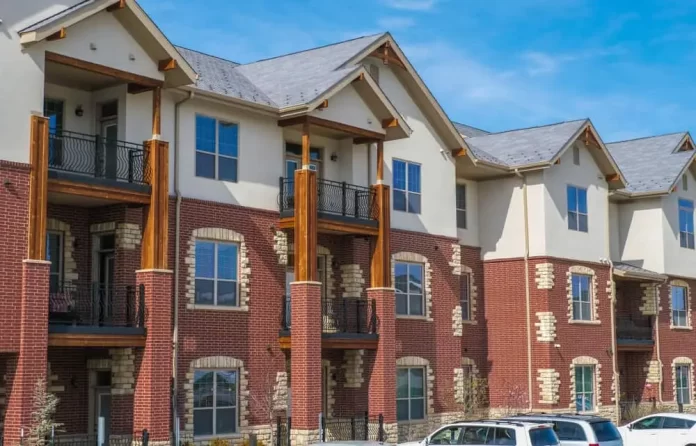
Multifamily properties are a significant segment of the real estate market, offering a unique investment opportunity and serving as homes for countless individuals and families. But what exactly is a multifamily property, and what distinguishes it from other types of real estate? In this article, we’ll delve into the concept of multifamily properties, their various forms, and their significance in the housing market.
Defining Multifamily Properties
A multifamily property, as the name suggests, is a type of real estate that provides housing for multiple families or individuals within a single structure or complex. These properties are designed to accommodate more than one household, making them distinct from single-family homes.
Types of Multifamily Properties
Multifamily properties come in various forms, each catering to different living arrangements and preferences:
1. Apartment Buildings:
Apartment buildings are perhaps the most common type of multifamily property. They consist of multiple individual units, each with its own separate entrance, kitchen, and bathroom.
These properties can range from small, walk-up buildings with a few units to high-rise complexes with hundreds of apartments.
2. Duplexes and Triplexes:
Duplexes contain two separate living units, typically side by side or one above the other. Triplexes, as the name suggests, have three units.
Duplexes and triplexes often appeal to both investors and homeowners who want to live in one unit and rent out the others.
3. Townhouses and Condominiums:
Townhouses and condominiums are multifamily properties in which individual units share common walls but may have separate ownership.
Condominium units are individually owned, while townhouse units may be owned individually or by a homeowners’ association (HOA).
4. Fourplexes and More:
Fourplexes contain four units, and there are multifamily properties with even more units, such as fiveplexes, sixplexes, or larger complexes.
These properties are often managed by a property management company or an HOA.
Investment Opportunities
Multifamily properties present attractive investment opportunities for several reasons:
Rental Income:
Owners of multifamily properties can generate rental income from multiple units, providing a steady cash flow.
Diversification:
Multifamily properties offer diversification within the real estate market, spreading risk across multiple units and tenants.
Potential for Appreciation:
Depending on location and market conditions, multifamily properties may appreciate in value over time, offering potential for capital gains.
Tax Benefits:
Investors may benefit from tax deductions related to mortgage interest, property management expenses, and depreciation.
Conclusion
In summary, a multifamily property is a real estate structure or complex that houses multiple families or individuals within separate living units. These properties come in various forms, including apartment buildings, duplexes, townhouses, and more. Multifamily properties provide investment opportunities, rental income, diversification, and potential for appreciation, making them a significant and valuable part of the real estate market. Whether you’re considering investing in multifamily properties or seeking a place to call home, understanding this type of real estate can be beneficial in making informed decisions in the housing market.
Multifamily Related FAQs:
The primary difference is that a single-family home is designed to house a single family or household, while a multifamily property is built to accommodate multiple families or individuals in separate living units within a single structure or complex.
No, multifamily properties can serve various purposes. While many are used for rental income, some owners live in one unit and rent out the others in duplexes or triplexes. Additionally, condominiums and townhouses in multifamily properties may have individual owners.
Investing in multifamily properties offers advantages such as generating rental income from multiple units, diversifying your real estate portfolio, potential for property appreciation, and tax benefits, including deductions related to mortgage interest and property expenses.
Property management can be handled by individual owners, a property management company, or a homeowners’ association (HOA) in the case of condominiums or townhouses. Maintenance responsibilities vary depending on the property type and management structure.
Financing multifamily properties typically involves commercial real estate loans or multifamily mortgages. Lenders may consider factors such as rental income, property condition, and your creditworthiness when evaluating loan applications.
In some cases, it may be possible to convert a single-family home into a multifamily property, but this often requires compliance with local zoning regulations, building codes, and permits. It’s essential to consult with local authorities and professionals to explore this option.
Rent control laws vary by location and often apply to specific types of multifamily properties, such as apartments in certain cities or states. It’s crucial to be aware of and comply with local rent control regulations when renting multifamily units.
The investment horizon for multifamily properties can vary widely. Some investors may hold properties for the long term, while others may buy and sell within a shorter timeframe based on market conditions and investment objectives.
While multifamily properties offer numerous advantages, they also come with challenges, such as property management responsibilities, tenant turnover, and the potential for vacancy periods. Additionally, market fluctuations can impact rental income and property values.
To get started, consider your investment goals, conduct market research, secure financing if necessary, and explore properties that align with your objectives. Consulting with real estate professionals and experts can also provide valuable guidance.
Explore further and dive deeper into the topic by checking out our related articles below
Companies That Buy Multifamily Properties Fast – Sell Multifamily Property
